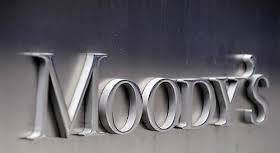- California Assembly OKs highest minimum wage in nation
- S. Korea unveils first graphic cigarette warnings
- US joins with South Korea, Japan in bid to deter North Korea
- LPGA golfer Chun In-gee finally back in action
- S. Korea won’t be top seed in final World Cup qualification round
- US men’s soccer misses 2nd straight Olympics
- US back on track in qualifying with 4-0 win over Guatemala
- High-intensity workout injuries spawn cottage industry
- CDC expands range of Zika mosquitoes into parts of Northeast
- Who knew? ‘The Walking Dead’ is helping families connect
Moody’s upgrades S. Korea’s rating to all-time high of Aa2
SEJONG (Yonhap) — Global rating agency Moody’s upgraded South Korea’s sovereign credit rating to Aa2 from Aa3, the highest-ever rating the fourth largest Asian economy has received from an international credit rating agency.
Moody’s also changed the outlook to stable from positive.
“The key drivers of the upgrade are Moody’s expectations that Korea’s credit metrics will remain strong and resilient compared to rating peers and that Korea’s very high institutional strength will support continued implementation of structural reforms, further promoting economic and fiscal resilience,” the agency said in a statement.
Moody’s said that challenges exist to Korea’s export-dependent growth model and that measures to counter the recent increase in the country’s household debt levels could weigh on growth next yeard. Other challenges include rapid aging of the population and immature social security frameworks.
“However, even based on Moody’s comparatively conservative forecasts, which project only a gradual return to trend growth of around 3 percent over the next five years, Korea will grow faster than the IMF-estimated average for advanced economies,” the agency said.
“Per-capita incomes will also continue to converge with those of advanced economies in Europe,” it said.
With regard to reforms, Moody’s said that Korea’s very high degree of institutional strength is supported by a bureaucratic system that is both consistent in policy formulation and effective in its implementation.
“Korea has a strong track record of successfully implementing reforms, such as investment policies following the Asian Financial Crisis of 1997/98. Korea’s scores for government effectiveness in the Worldwide Governance Indicators have been on an upward trend since the mid-2000s,” it said.
The agency also said that Korea is successfully containing contingent fiscal liabilities and financial system external vulnerabilities, adding that stepped up oversight by the finance ministry and the National Assembly has improved management of government-related institutions (GRIs).
Over the past two years, the government has outperformed its own goals and reduced the GRI debt-to-equity ratio faster than planned, the agency said. Under the current plan for 2015 to 2019, the debt for 39 public institutions would fall to 197 percent of equity by the end of this year, below an original target of 200 percent by the end of 2017, it said
















